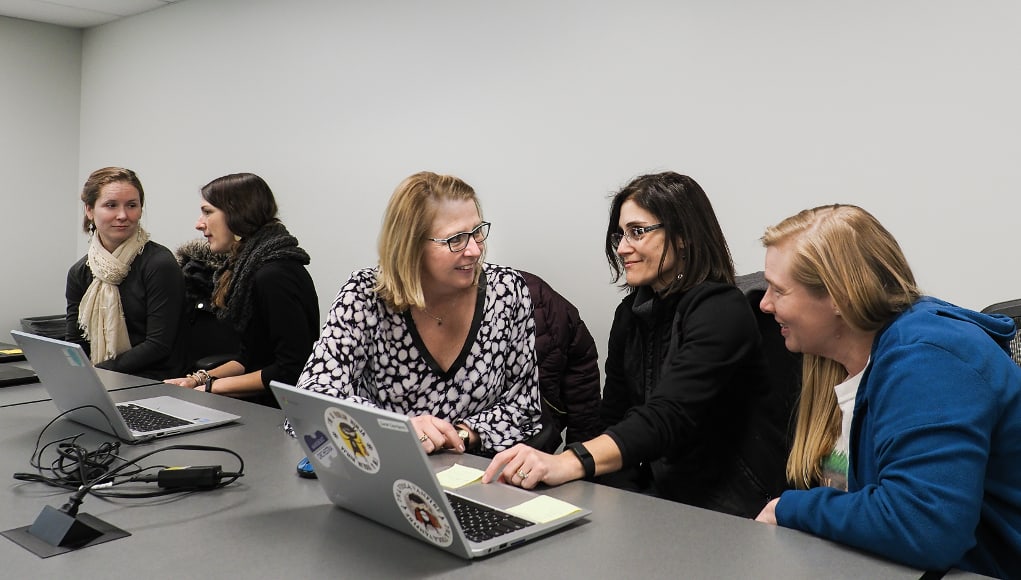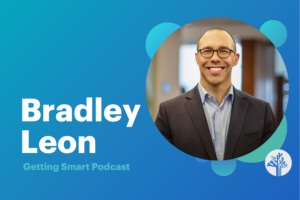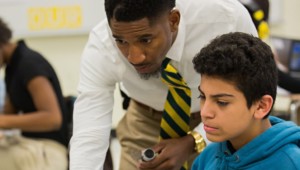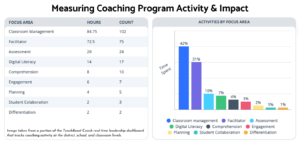Three Keys to Providing a Coach for Every Teacher

By Dr. Ken Wallace
Teacher effectiveness is the number one school-related factor that impacts student achievement. To be as effective as possible, teachers need support in their professional development, whether that is through PLCs, administrator evaluations or coaching.
In my suburban-Chicago district, Maine Township High School District 207, we believe that teachers, like athletes, should routinely get feedback and coaching to help them grow. Each and every one of our teachers receives coaching on a regular basis.
 In fact, this year’s seniors may be the first class to go through a district where every teacher was coached every year. Coaching every teacher may sound like a massive undertaking, but we have found that our model is not only cost-effective but replicable. Here are three best practices for making it work.
In fact, this year’s seniors may be the first class to go through a district where every teacher was coached every year. Coaching every teacher may sound like a massive undertaking, but we have found that our model is not only cost-effective but replicable. Here are three best practices for making it work.
1. Use Your Teachers As Coaches
Who knows more about teaching than teachers? In our district, all of our coaches are teachers. We don’t hire outside support unless it will help build our own internal capacity. Our coaches teach half-time and coach the other half. If you’ve been out of the classroom for five years coaching, teachers may become skeptical about whether you really understand their experience, and may not take your feedback as seriously.
Having our coaches divide their time between their own classroom and others’ gives them more credibility with the teachers they coach. For the future, we are considering ways to allow more teachers to coach and lead others, but for now, we think it is most valuable to have them with a foot in both worlds simultaneously.
Using teachers as coaches establishes our teachers as experts in their field. They are the individuals who are in the classroom every day, interacting with students and observing what works and what doesn’t. Giving them an opportunity to engage in the coaching of their peers creates a sustainable coaching model, where teachers own their own learning.

The point of coaching is to give our teachers space and opportunities to improve their practice through self-reflection, as well as peer feedback. As is the case with our students, if educators own their learning, they will be that much more invested in growing their practice. If we want our teachers to be great, we have to give them space to be great.
Coaching is just as valuable for the coaches as it is for the teachers being coached–maybe even more so. As William Glasser once said, “We learn 10% of what we read, 20% of what we hear… (and) 95% of what we teach to someone else.” When our coaches are giving feedback to their peers, they are also learning how to improve their own teaching practice, which they can apply immediately in their own classroom.
Our coaches work with every teacher, even those who may be reluctant or hesitant about the coaching process. This is a great learning experience for our teacher coaches, one they may not have the opportunity to take advantage of unless they become administrators. Consequently, we are seeing many of these coaches eventually becoming administrators as a result of their coaching experiences.
2. Empower Teachers To Self-Coach With Video
One tool that will help us in our goal of regular coaching for every teacher will be the use of video through the Insight ADVANCE platform, which we will launch this fall. Based on our experience, video is a powerful tool for teachers to study themselves in real situations, which is why it is so prevalently used in to improve performance in athletics.
Our teachers will own the videos they take of themselves and will be able to submit them for evaluation, observations or as artifacts if they wish (but it will not be required). They will have the option to share them for peer and coach feedback if they would like to, but there will be no “gotcha” here. The teachers will have total control.
 We believe the best practitioners are those who are self-reflective, and video amplifies that in a way no other tool does. If the worst thing that happens is that teachers keep the videos for just themselves to look at and reflect on, I will be completely satisfied.
We believe the best practitioners are those who are self-reflective, and video amplifies that in a way no other tool does. If the worst thing that happens is that teachers keep the videos for just themselves to look at and reflect on, I will be completely satisfied.
3. Create a Pipeline of Qualified Coaches
Our district has always pursued innovation (for instance, we were the first K–12 district to partner with Google). I haven’t seen anyone else doing wall-to-wall coaching—every teacher every year—like we have in our district, and I feel so privileged to work in a district that gives me space to lead in an innovative way like this. I also feel a tremendous responsibility to showcase how innovative world-class public schools can be, so no one will ever think twice about sending their children to public school.
In our district, we believe in the power of coaching so much that we embarked on an entrepreneurial venture to found the Chicago Coaching Center. The purpose of the center is to instill instructional coaches with the specific skill sets they’ll need to provide effective, consistent feedback to classroom teachers.
 My district is a high school district, but we’ve partnered with a neighboring district to add elementary school coaches to the center. We envision this coaching center to be a model that not only pays for itself also perhaps provides revenue to continue to support our adult learning program. We also see this one center growing into a national model that advances instructional coaching from a practitioner’s point of view.
My district is a high school district, but we’ve partnered with a neighboring district to add elementary school coaches to the center. We envision this coaching center to be a model that not only pays for itself also perhaps provides revenue to continue to support our adult learning program. We also see this one center growing into a national model that advances instructional coaching from a practitioner’s point of view.
Student learning and adult learning are symbiotic. If you’re not attending to adult learning, you’re not going to get the results you want with student learning. Teachers are not only the single most important factor when it comes to student learning, they are also a district’s single greatest asset when it comes to teacher learning.
Dr. Ken Wallace is the superintendent of Maine Township High School District 207 and founder of the Chicago Coaching Center. Follow him on Twitter: @KenWallace207
For more, see:
- Four Key Ingredients For The Teacher PD Revolution
- Is Student Learning Directly Impacted By Teacher PD?
- Aligning Dream Team Content with Assessment and Teacher PD
Stay in-the-know with all things EdTech and innovations in learning by signing up to receive the weekly Smart Update.






0 Comments
Leave a Comment
Your email address will not be published. All fields are required.